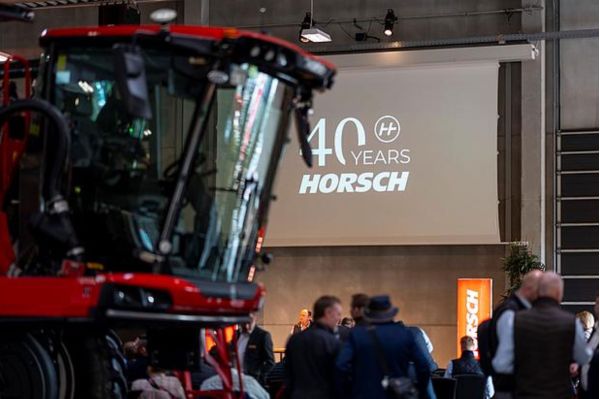Horsch celebrates 40 years of innovation

In 1984, the German company was founded in Sitzenhof near Schwandorf where the company’s headquarters are still based. Michael Horsch’s first developments, however, date back even further. Based on his vision of farming without a plough and the requirement for the appropriate machines, he developed the Seed-Exactor, a machine for direct seeding under straw. This innovation paved the way for the foundation of the company as it is today.
An important milestone in the history of the company was the fall of the Berlin Wall in 1989 and the opening of the eastern countries, where larger farms had a great demand for Horsch technology. In the 2000s, Horsch launched the Terrano, Tiger and Pronto – three important product lines in the tillage and seeding sectors – which are still being continuously developed today.
The foundation of Horsch Leeb Application Systems GmbH in 2011 completed the product range with crop-care technology. However, the first joint projects of Horsch and Leeb date back to the late 1990s, when the first prototype of a self-propelled sprayer was developed. With the launch of the pneumatic fertiliser spreader, Leeb Xeric, Horsch has now expanded into the fertilisation sector.
In recent years, the focus has been on the extension of the product range and on diversification to provide solutions for the varied farming requirements all over the world. Horsch has focused on internationalisation and the development of new markets. The result was worldwide growth in all sectors. In addition to the development and construction of a site in Brazil with its own production line, significant investments were also made at all sites in Europe. In the past five years, the number of employees has doubled to almost 3,300 all over the world.
In view of increasing weather extremes and climatic changes, precision farming has become one of the central themes of the future. The company said it has been focusing on this for many years and will continue to invest in and develop this across all sectors in the future. Digitalisation will play an even more important role in the company, as Horsch takes advantage of the benefits and potential that it offers. “From a global point of view, autonomic driving projects will become more and more important. The development and the implementation of these technologies are intensively pushed in some markets. Close contact to the customer and intensive discussion have been a fundamental part of Horsch’s culture since its foundation. One of the big objectives is to be even closer to customers, to understand them better and to always develop new, innovative solutions,” a spokesperson said.





